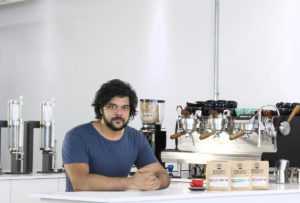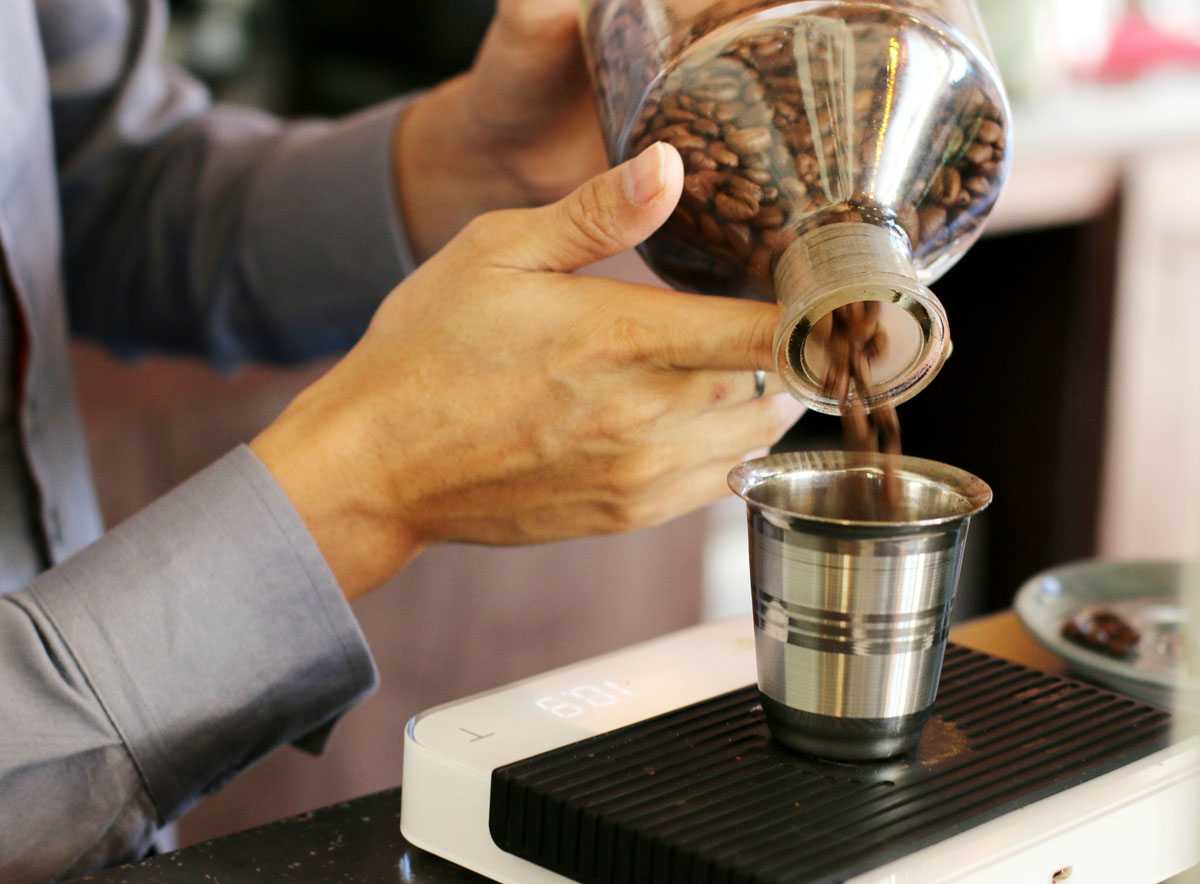The cultural domination of the humble cup of coffee is showing no signs of relaxing its grasp on the Middle East’s hot beverage market.
The region represents 8 percent, or $6.5bn, of the $85bn spent on the drink globally and that is only growing. In the UAE, more than $544.5m was spent on coffee in 2015, a 10 percent rise on the previous year, according to the 2016 Euromonitor report on coffee in the UAE, published in April.
More than 19,000 tonnes of coffee was sold in the UAE last year, up 7 percent.
But with 2,200 new cafe licences issued in an already saturated food and beverage market in the past two years, even the most successful local vendors and suppliers cannot afford to be satisfied. Smart companies are boosting profits by identifying a growing number of consumers who demand quality over quantity, says one supplier.
Specialty coffee is the next frontier for the region’s vendors, according to the Euromonitor report. This segment of the industry is spearheaded by independent specialist coffee merchants that focus on the best rather than volume by serving single origin coffee.
It pointed directly at the rise of cafes with speciality business models that are “increasingly regarded as ‘go-to’ destinations as opposed to traditional franchised cafes”.
Of course, hugely recognisable chain brands are not going away any time soon. With convenient locations, recognisable products and welcoming settings, big names such as Starbucks and Costa will continue to pepper any walk through a mall or commercial area.
It means the region’s coffee shops could see significant profit increases by upgrading the quality of the coffee, according to Godinho, who says some of his clients are receiving half of their revenue from coffee itself, rather than on food, cold drinks and other extras, which generic coffee shops often rely on.
“Most of our clients would attest to the fact that the addition of speciality coffee to their menu has significantly altered their food-to-beverage [revenue] percentage,” he says. “As in most restaurants, beverage would account for approximately 20 to 30 percent of revenue. However, through our clients, we were privy to their figures reflecting 40 to 50 percent revenue attributed to their coffee service.
“We’ve seen a lot more consumers requesting particular varieties of coffee, certain methods of process, as well as particular brewing methods. They are asking all the right questions and they do not seem to be slowing down. Their thirst for knowledge is growing, more so with well-travelled individuals who have experienced more evolved speciality cafe cultures around the world.
“The UAE has no doubt been on the forefront of speciality coffee development within the GCC. Although there is a lot of movement in recent years, particularly in Saudi Arabia, Kuwait, Bahrain and Qatar. In my opinion, I see the UAE as one of the leaders in a somewhat more even growth of the industry in terms of supply versus demand.”
It is an industry set to record unprecedented volumes at a compounded annual growth rate (CAGR) of 7 percent in the UAE over the forecasted period to reach 30,198 tonnes in 2020.
The number of local roasters – those who brew coffee either for wholesale or their own café or both – also is expected to increase amid growing appreciation of the bean culture, according to Euromonitor.
As the market continues to grow, this high-end segment has huge implications for both newcomers looking to find a foothold in a crowded market and existing outlets searching for a way to boost profits from food and beverages.
But this growing niche product should not be confused with coffee that is described as “gourmet” or “premium”. The internationally recognised standard is that of the Specialty Coffee Association of America (SCAA), which recognises coffee that scores at least 80 out of 100 in the SCAA’s “cupping protocol”.
“Speciality coffee is a defined term and confirms that coffee meets a particular quality standard as per a legitimate and lengthy rating or grading system of 100 points. This coffee has achieved a certain higher quality that is thoroughly traceable,” says Godinho.
“In my opinion, you are only serving [regular] coffee until you provide your customers with skilled beverage preparation, [giving them] active or passive education through exceptional customer service.
“A knowledgeable head barista will be your strongest asset when working towards offering the specialty coffee experience. The owners and all front-of-house staff are responsible for introducing this experience to customers in a non-threatening way – and this is primarily where the region tends to fall short. Having said that, from first-hand experience, your best tool for growing the specialty coffee-appreciating community is by word of mouth.”

There are now more than 70 specialty coffee outlets in the UAE alone, with multiple roasters. On a busy 13-hour day, a popular specialty coffee shop within a stand-alone residential area can sell more than 1,500 cups, says Godinho.
Another local supplier, Dubai-based Coffee Planet, has increased its production capabilities by expanding its roasting facility, which is already the largest in the country before expansion plans go ahead this year.
It is recognising how customers are craving fresher coffee, which means buying locally, according to managing director Robert Jones.
“The Middle East is cultivating more and more coffee drinkers, making it one of the fastest growing markets in the world for coffee consumption,” Jones says. “We have observed first-hand how consumers’ knowledge and appreciation for good-quality coffee is constantly improving.
“With an increase in knowledge comes an increase in the desire for sophisticated coffee taste profiles, and we have noticed a higher demand for freshly roasted single-origin and micro-lot coffees. This notable trend is coupled with the need for freshness. As with food, it is noticeable when coffee is not fresh, therefore more and more coffee drinkers in the region are turning to brands that roast their coffee locally.
“Whether a coffee company is large or small, their expertise can lend itself to specialty coffee if this is a passion point. To become involved in the specialty industry, we believe it’s important to invest time and resource to source the best beans from the bean belt (a band that is surrounded by the Tropics of Capricorn and Cancer) from day one.
“To ensure we receive the highest-quality, specialty-graded Arabica beans, the ones that grow over 1,700m above sea level, we manage the full traceability of our green beans by sourcing our coffee directly from more than 20 countries in Africa, Indonesia, India, Central and South America.”
These coffee-producing countries are synonymous with growth and exportation of the bean. Yet coffee as we know it started life a lot closer to home for the Middle East.
Its history begins with the apocryphal tale of Kaldi, a goat-herder in ninth-century Ethiopia, who, it is said, discovered the drink when he noticed how excited his goats became after eating beans from a coffee plant – though the story did not appear in writing until 1671.
In truth, it was probably discovered in the African country in the eleventh century, before reaching Yemen in the mid-fourteenth century, where ideal growing conditions led to the country becoming the world’s premier producer of the bean. It is thought that Yemen produced the vast majority of coffee sold in the thousands of coffee shops in Cairo in the 1500s – and that the very first coffee beans to be served to Europe were from Yemen.
Even now, Yemen’s rich coffee reputation endures. Earlier this year, beans from the Gulf country were added to the portfolio of US brand Blue Bottle Coffee, one of the world’s biggest suppliers.
A tribute to the Yemeni city from which the crop was exported in vast quantities 500 years ago can be found in the name of one of Dubai’s outlets, Mokha 1450 Coffee Boutique in Al Wasl Road.
Co-owner and managing director Garfield Kerr says other Gulf countries, particularly Saudi Arabia, have been quick to follow the UAE’s lead in recognising the potential of speciality coffee.
“However, there are many initiatives currently under way in the UAE, such as support from the Speciality Coffee Association of Europe (SCAE) to form a Middle East and North Africa (MENA) chapter in the UAE. These initiatives and others will make the UAE the centre of the specialty coffee industry in the MENA region,” he says.
“Speciality coffee is the fastest growing segment, in one of the world’s fastest growing regions. The Middle East represents 8 percent, or $6.5bn, of the $85bn global consumer market. However, speciality coffee is still a small segment of the overall coffee industry. But as more and more consumers become educated, the market share of specialty coffee is projected to grow exponentially over time.”
But pitfalls remain, he says.
“Speciality coffee is at a much higher level and it is very difficult to deliver a perfect cup of coffee every time without the requisite knowledge and emphasis on training and the proper staff that are in love with coffee and to whom it is more than a job,” Kerr says.
“There are also a limited number of individuals with the disposable income to pay for a cup of specialty coffee in the UAE so the market is quite limited, though the growth trend is positive. Someone who wants to get in should know it is not as easy as it looks and they should do their homework and acquire the necessary SCAE certifications before moving forward.”
Yet Karim Abu Ajram, managing partner at branding consultancy firm Darna and speciality coffee enthusiast, insists there is still room for more providers in the UAE.
“I had my first speciality coffee two years ago at Cafe Rider in Al Quoz [in Dubai]. My friend introduced it to me. I was blown away. I was drinking sweet coffee that didn’t contain sugar. It wasn’t bitter. I was shocked that something like this existed. Then I immersed myself more and got to learn more about it.”
Since then, Ajram has combined business with pleasure, working with a number of new firms looking to launch in the emirates.
“If we look at the UAE, the speciality coffee market is growing,” he says. “Speciality coffee sourcing has increased. More demand is there but the supply won’t be able to cope with it. After a few years, it’s going to be challenging because specialty coffee isn’t easy. It has to be a certain type of plant. How they farm it, how they tend to it, how they dry it before it is roasted. So you need experts, and experts are not always readily available. It requires training, sustainability and so forth.
“It’s like pure-bred horses – you can’t create as many as you want, you have to be selective.
“There is opportunity – the market is not saturated yet. Abu Dhabi is the emirate of opportunity now for coffee. Emiratis have become very accustomed to speciality coffee; they appreciate it. They appreciate value and they are very smart at evaluating brands, when it comes to cars and fashions. They want to know the history of the brand, who is behind the brand, and they want something that’s unique, that’s new.
“[Speciality coffee] can grow because it’s still new. You have a high level of middle and upper middle class people, Emiratis and expats. What is the thing we are all looking for? Value. So there is lots of potential for competition. It’s not overly priced; a good cup of coffee is about AED23. We are not high-end coffee, we are different. We are serving you coffee how it should be served – at its best.”
As the region’s coffee industry steams ahead at unprecedented pace, those in the speciality coffee segment are banking on the fact that this emphasis on quality will separate them from the pack.










